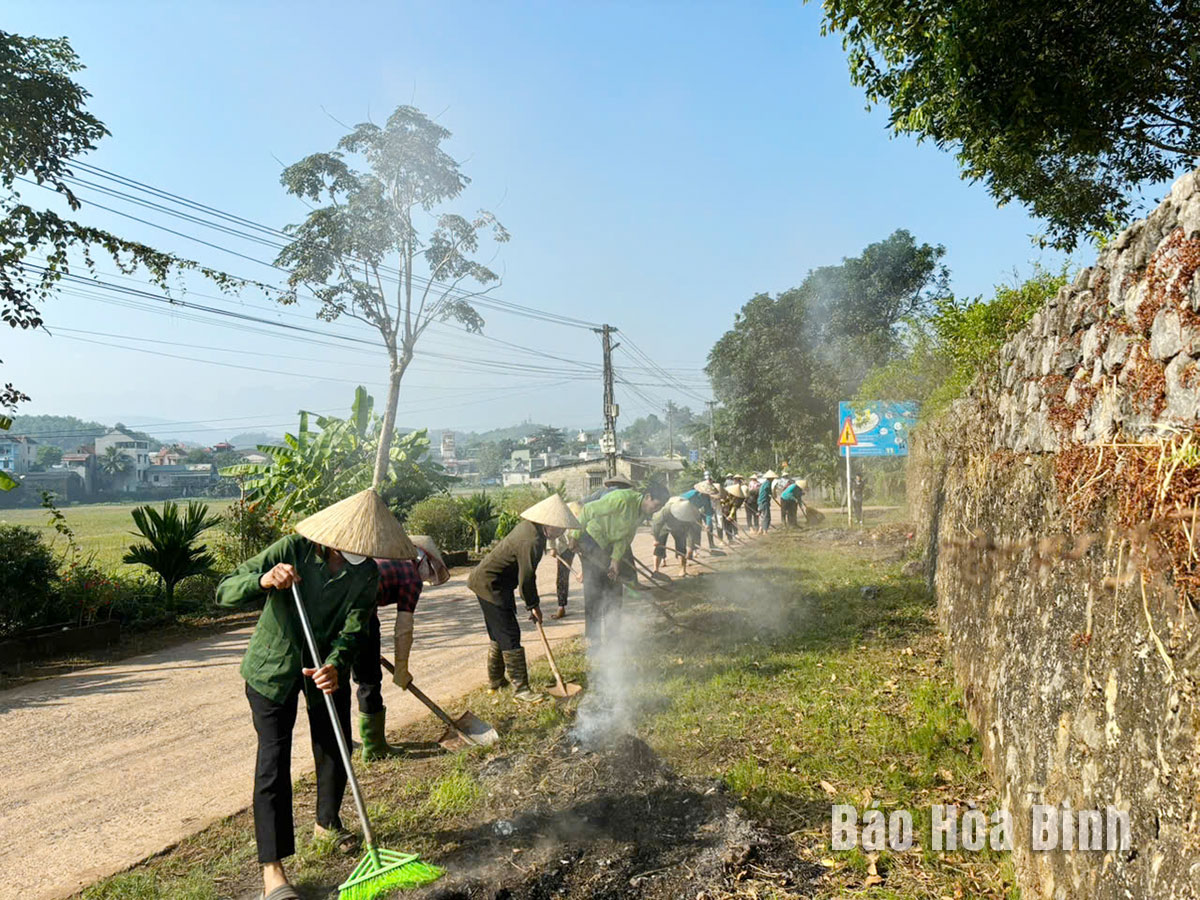



People in Chua hamlet, Tu Ne commune, Tan Lac district regularly clean village roads and build flower roads to build advanced new-style rural areas.
Through emulation campaigns like the "Clean House, Beautiful Garden, Fresh Environment, Civilised Alley" and "Self-Managed road sections", many families and communities in the province have embraced sanitary practices that contribute to rural environmental protection. Key actions include ensuring tidy homes, keeping village roads clean, building livestock facilities away from residential areas, and constructing hygienic latrines.
Under the rural sanitation and clean water programme, the province has built over 11,000 hygienic latrines, raising the percentage of such facilities in rural areas to 88.7%. Significant infrastructure improvements have also been achieved, including the construction of 45.5km of concrete roads meeting new-style rural standards, the repair and clearing of 55km of inter-village roads, the construction of 46 clean water reservoirs, and the relocation of 352 livestock and poultry barns away from residential areas.
Many localities have implemented innovative approaches to sorting waste at its source, particularly household waste. Various communities have established waste collection points, built mini incinerators, and promoted recycling to reduce landfill waste. Since 2021, the province has constructed 32 mini incinerators and hundreds of waste pits, while intensively collecting and processing waste and clearing drainage systems. The provincial Women’s Union has distributed 1,789 reusable baskets and waste bins to its members and constructed 105 household waste pits. The province’s Ho Chi Minh Communist Youth Union has addressed 70 environmental hotspots, collecting and processing over 40 tonnes of waste. Meanwhile, the provincial Military Command has mobilised officers, soldiers, and local residents to clean public spaces, gather and process waste, and clear 13,170 metres of drainage channels.
Hoang Van Tuan, Deputy Director of the provincial Sub-Department of Rural Development under the Department of Agriculture and Rural Development, emphasised that rural environmental protection is closely tied to promoting safe production standards. The province has supported 87 facilities, including businesses, cooperatives, and households, in obtaining Vietnamese Good Agricultural Practices (VietGAP) and Global Good Agricultural Practice (GlobalGAP) and organic production certifications in aquaculture, crop cultivation, and animal husbandry. Efforts include planning low-emission zones, such as buffer zones around protected areas, wetland regions, and rural residential clusters, and ensuring that all new production facilities have wastewater treatment systems that meet environmental standards.
The provincial People’s Council also issued Resolution No. 70/2021/NQ-HĐND on December 9, 2021, defining areas where livestock farming is prohibited and providing support for relocating farms from these restricted zones. This policy aims to transition small-scale household livestock farming to medium- and large-scale operations, adopting closed-loop systems to ensure food safety and environmental protection.
Thanks to the comprehensive implementation of these measures, up to 111 out of the 129 communes in Hoa Binh have met environmental and food safety criteria in new rural area construction, equivalent to 86%. Regarding compliance with veterinary and environmental hygiene standards, 79,788 out of 107,279 livestock-raising households in the province are adhering to regulations. This progress reflects Hoa Binh’s commitment to sustainable rural development and environmental conservation.